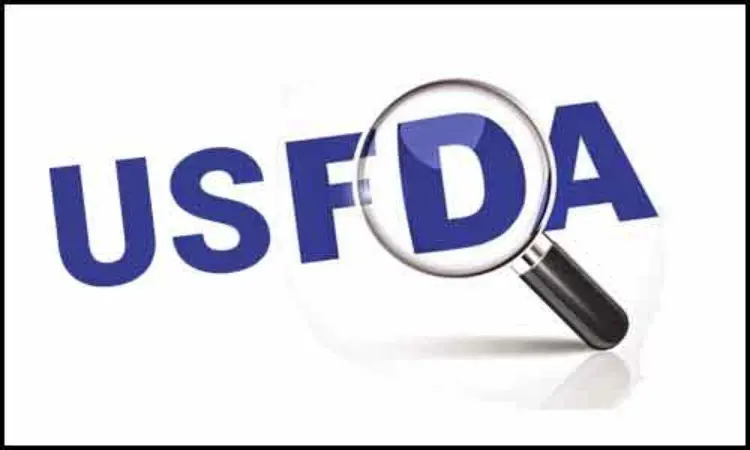- Home
- Medical news & Guidelines
- Anesthesiology
- Cardiology and CTVS
- Critical Care
- Dentistry
- Dermatology
- Diabetes and Endocrinology
- ENT
- Gastroenterology
- Medicine
- Nephrology
- Neurology
- Obstretics-Gynaecology
- Oncology
- Ophthalmology
- Orthopaedics
- Pediatrics-Neonatology
- Psychiatry
- Pulmonology
- Radiology
- Surgery
- Urology
- Laboratory Medicine
- Diet
- Nursing
- Paramedical
- Physiotherapy
- Health news
- Fact Check
- Bone Health Fact Check
- Brain Health Fact Check
- Cancer Related Fact Check
- Child Care Fact Check
- Dental and oral health fact check
- Diabetes and metabolic health fact check
- Diet and Nutrition Fact Check
- Eye and ENT Care Fact Check
- Fitness fact check
- Gut health fact check
- Heart health fact check
- Kidney health fact check
- Medical education fact check
- Men's health fact check
- Respiratory fact check
- Skin and hair care fact check
- Vaccine and Immunization fact check
- Women's health fact check
- AYUSH
- State News
- Andaman and Nicobar Islands
- Andhra Pradesh
- Arunachal Pradesh
- Assam
- Bihar
- Chandigarh
- Chattisgarh
- Dadra and Nagar Haveli
- Daman and Diu
- Delhi
- Goa
- Gujarat
- Haryana
- Himachal Pradesh
- Jammu & Kashmir
- Jharkhand
- Karnataka
- Kerala
- Ladakh
- Lakshadweep
- Madhya Pradesh
- Maharashtra
- Manipur
- Meghalaya
- Mizoram
- Nagaland
- Odisha
- Puducherry
- Punjab
- Rajasthan
- Sikkim
- Tamil Nadu
- Telangana
- Tripura
- Uttar Pradesh
- Uttrakhand
- West Bengal
- Medical Education
- Industry
USFDA grants Breakthrough Therapy Designation to Nipocalimab for treatment of adults with moderate-to-severe Sjögren's disease: JnJ

Spring House: Johnson & Johnson has announced that the U.S. Food and Drug Administration (FDA) has granted nipocalimab Breakthrough Therapy designation (BTD) for the treatment of adults living with moderate-to-severe Sjögren’s disease (SjD), a debilitating and chronic autoantibody disease with high prevalence, for which no approved advanced treatments are available. Nipocalimab is a investigational therapy to secure this designation in SjD. This regulatory milestone is the second time BTD has been granted for nipocalimab; the first was granted in February for the treatment of alloimmunized pregnant individuals at high risk of severe hemolytic disease of the fetus and newborn (HDFN).
“The announcement marks an important step forward in the continued research and development of nipocalimab, the first investigational FcRn blocker to demonstrate positive results in a Phase 2 study in adult patients with moderate to severe Sjögren’s disease,” said Terence Rooney, Vice President, Rheumatology, Immunology Disease Area Leader, Johnson & Johnson Innovative Medicine. “With no treatments currently approved that may directly address the underlying cause(s) of the disease, innovation is critically needed to improve patient outcomes in Sjögren’s disease. This milestone underscores our unwavering commitment to develop novel, transformational therapies that may help address significant unmet need for patients living with autoantibody-driven diseases.”
The BTD is supported by data from the Phase 2 DAHLIAS study evaluating the efficacy and safety of nipocalimab for the treatment of adult patients with moderate-to-severe SjD and supports further evaluation of the investigational treatment through a Phase 3 study, which is underway. Data from the nipocalimab Phase 2 DAHLIAS study were featured in a late-breaking oral presentation (LBA0010) at the European Alliance of Associations for Rheumatology (EULAR) 2024 Congress and demonstrated the first-ever positive results of an investigational FcRn blocker as a potential targeted therapy in SjD.
The FDA grants BTD to expedite the development and regulatory review of an investigational medicine that is intended to treat a serious or life-threatening condition and is based on preliminary clinical evidence that indicates the drug may have substantial improvement in at least one clinically significant endpoint over available therapy. Many patients living with SjD experience symptoms that interfere with daily activities and quality of life. While SjD most frequently affects the glands that produce saliva and tears, more systemic symptoms called extraglandular manifestations are common and may impact multiple organ systems, including joints, lungs, kidneys, and nervous system. Patients with SjD also have a high-risk of developing numerous associated conditions, including up to 20 times higher risk of developing B-cell lymphomas when compared to the general population. Patients with high activity in more than one organ or disease domain have an increased mortality risk of up to five-fold.
Ruchika Sharma joined Medical Dialogue as an Correspondent for the Business Section in 2019. She covers all the updates in the Pharmaceutical field, Policy, Insurance, Business Healthcare, Medical News, Health News, Pharma News, Healthcare and Investment. She has completed her B.Com from Delhi University and then pursued postgraduation in M.Com. She can be contacted at editorial@medicaldialogues.in Contact no. 011-43720751
Dr Kamal Kant Kohli-MBBS, DTCD- a chest specialist with more than 30 years of practice and a flair for writing clinical articles, Dr Kamal Kant Kohli joined Medical Dialogues as a Chief Editor of Medical News. Besides writing articles, as an editor, he proofreads and verifies all the medical content published on Medical Dialogues including those coming from journals, studies,medical conferences,guidelines etc. Email: drkohli@medicaldialogues.in. Contact no. 011-43720751


